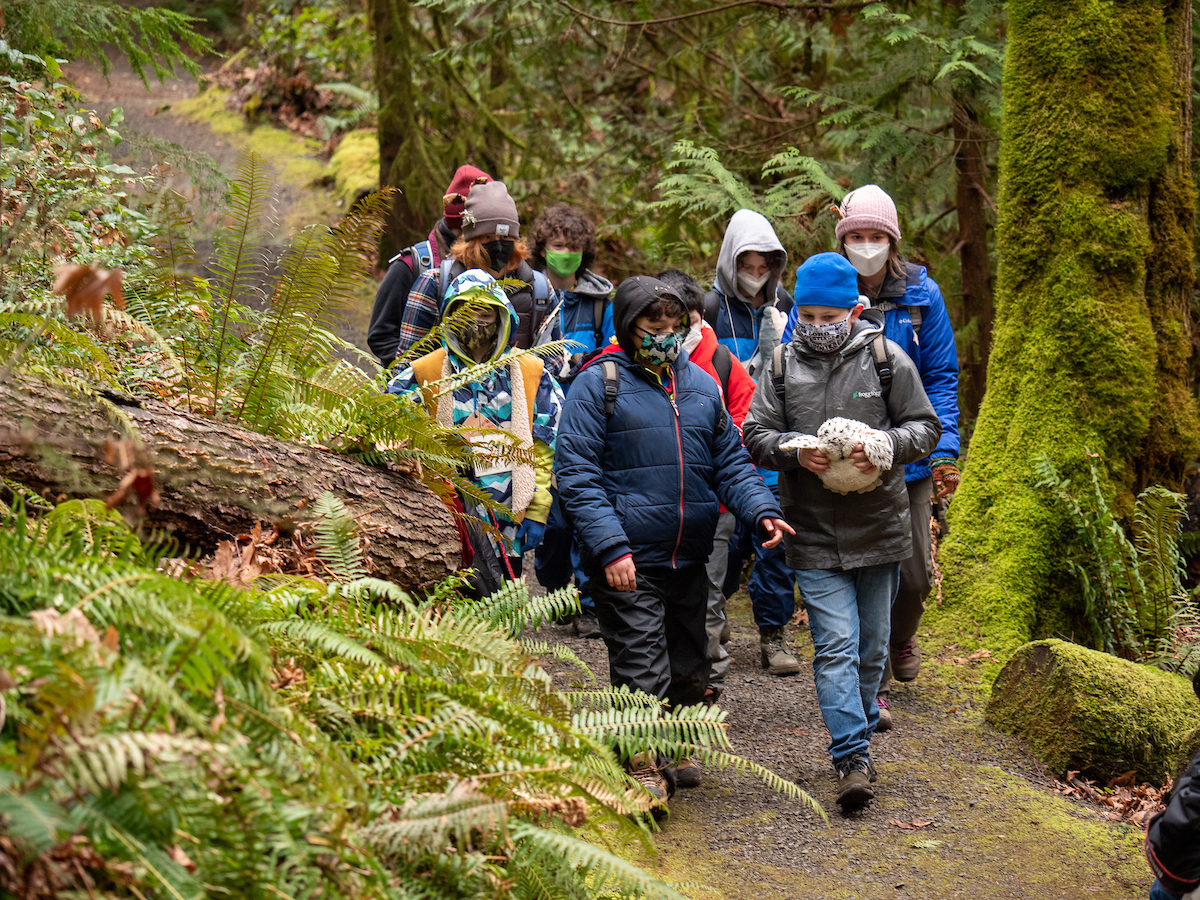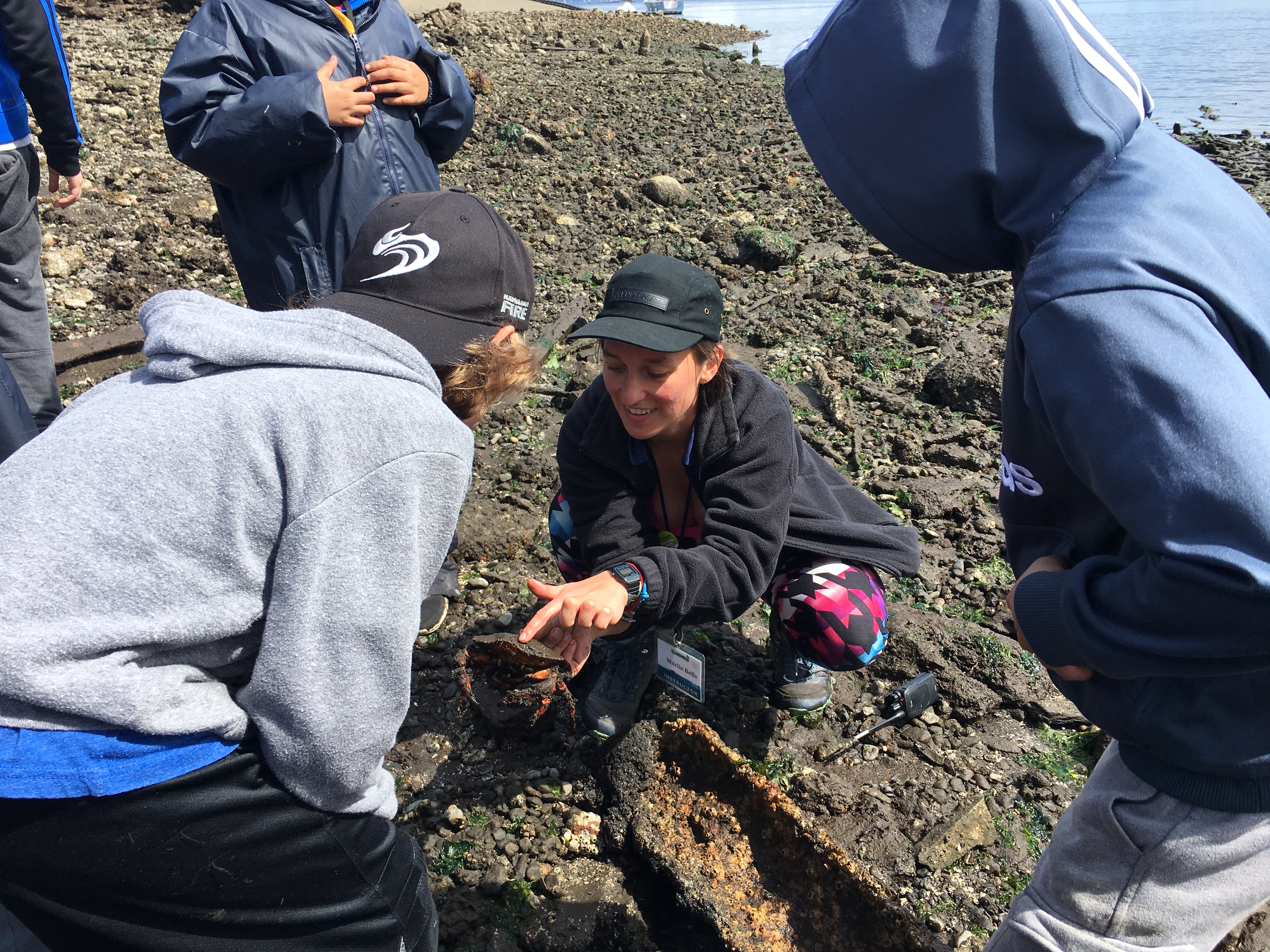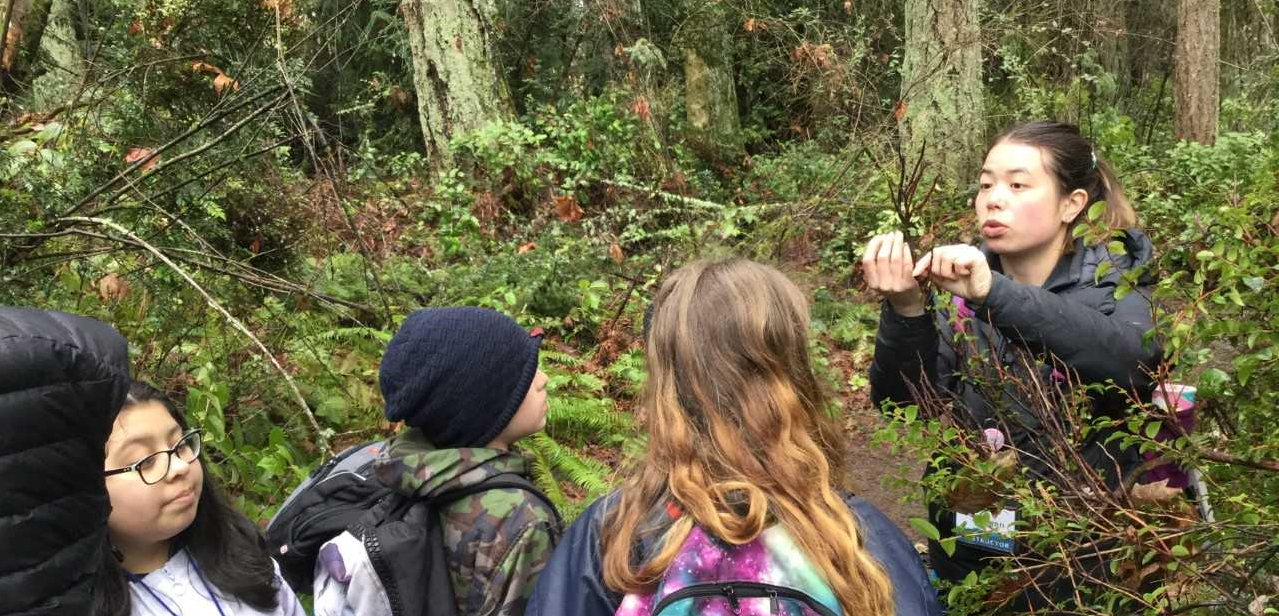IslandWood graduate students were featured in this recent Seattle Times article about House Bill 2078
By IslandWood Graduate Student, Chloe May
“I have grown as an instructor through peer teaching in ways I had not anticipated, and I have had some of the most interesting encounters with science in subjects new to me.”
As a student in the IslandWood Graduate Program, I normally would have spent most of my 10-month residency teaching IslandWood’s School Overnight Program to 4th – 6th graders, along with completing my coursework. But as the peak of the pandemic minimized in-person teaching opportunities with children for quite some time (overnight programs were not able to run for most schools), we graduate students spent much of this past year creating and practicing lessons with each other, or peer teaching.
There is a lot to be said about the learning experiences in peer teaching! Each graduate student here comes to IslandWood with knowledge, skillsets, and most importantly, passion for subjects unique to one another. I have grown as an instructor through peer teaching in ways I had not anticipated, and I have had some of the most interesting encounters with science in subjects new to me. What I have learned, what I have enjoyed, and what I would like to write about is a list a lot longer than five items, but I have boiled it down to a top-five list.

Kimchi that had been fermented in various environmental conditions designed as a science experiment in Chloe’s Natural History and Ecology class.
1. How to cook up a science experiment in the kitchen
In our Natural History and Ecology class, we designed our own science experiments that we would want to teach a group of elementary school students and demonstrated the lessons to each other. My culinary-inclined classmates taught us about the fermenting process. We tasted kimchi that had been fermented in various environmental conditions, showing the relationship between the weather and what we eat. Similarly, we baked bread using one graduate student’s sourdough starter that had traveled the world. We discussed the varying rise time and ingredient ratios when in different climates around the world.

Beehives in the IslandWood Garden Classroom observed by Chloe and her fellow graduate students.
2. How to bee aware of our insect communities
Another classmate brought us to the beehives in the IslandWood garden. In late fall, we witnessed the tail end action for the season; we searched for the Queen Bee, and we observed the varying temperatures in different places of the hive. We even suited up in bee gear!
3. How to match energy levels through a dynamic week
One thing new educators will quickly learn is that energy levels wane and wax throughout the day – in ourselves as educators, and in our students. We found this to be especially true when we were playing the roles of both educators and students. During the fall quarter, two of my classmates led a solo-walk through the Forest Loop at IslandWood, where we had time to walk through the woods silently and reflect on contemplative prompts that are provided every few meters. We gave way to our senses to experience the forest in a new way. My classmates that set up this solo-walk acknowledged what a busy week we had and set the tone to a calm and soothing mood when we had been asked to be high-energy for many activities prior. I saw the eloquence and intention they put into this solo-walk and took that with me for my future teaching activities in reading the energy levels my students bring to the space. Reminding ourselves and students that taking a moment to be quiet and explore a space without talking is important to conserve group energy and to learn a new way of being mindful.
4. How to incorporate embodiment exercises into daily lessons
Moving our bodies in the classroom is something we stop doing around middle school, and I was highly uncomfortable at the first mention of “embodiment exercises” when one of my classmates led this activity. I quickly changed my mind when I witnessed my peer’s delivery of embodied activities; with such convincing buy-in from them, I opened my mind to how embodying concepts of an ecosystem could help me learn and remember the several components. My first encounter with learning through embodying was learning about IslandWood’s “Living Machine,” the system of cleaning wastewater that is a complex and involved process. We learned the process step-by-step, creating a dance that was made up of movements that represented how water would move through each aspect of the sanitation process. I have since used embodiment activities for plant explorations on seed germination, root establishment, and plant decomposition. Not only is embodying a powerful tool for committing concepts to memory, but also a tool for mindfulness, an excuse to get the blood circulating, and a fun way to be silly with classmates.
5. How to play as an adult!!!
This has been my biggest takeaway from peer teaching – play is for everybody of all ages. Coming into this program without having “played” in my work or school setting in over a decade, I was worried how I could get young learners to be interested in games and silliness when I was not convinced myself. As my classmates bring play into the lecture halls, the garden, the forest, and at home, I greatly appreciate the daily volleyball scrimmage and improvisational games. Starting classes out every Thursday and Friday with a dance party, a conceptual game of freeze tag, or a repeat-after-me song helps clear any subsiding stress and transition into a new space and energy.
In the traditional graduate program that IslandWood puts forth without a pandemic, we would have hit the ground running back in October. As I began working with children again in February, I brought with me the combined experience and knowledge of my 32 classmates, that I would not have otherwise been able to easily learn. We come from diverse backgrounds – classroom teachers, horticulturalists, sailors, non-profit managers, disaster relief responders, international educators, adventure guides, social workers – we have all met at the common ground of environmental education. In sharing the pathways that brought us here, we learn more deeply how the environment is the basis for all connections in life.

Learn more about the IslandWood graduate program in partnership with the University of Washington College of Education here.
If you haven’t already, subscribe to our newsletter to stay in the know about blog posts, news, and events!









